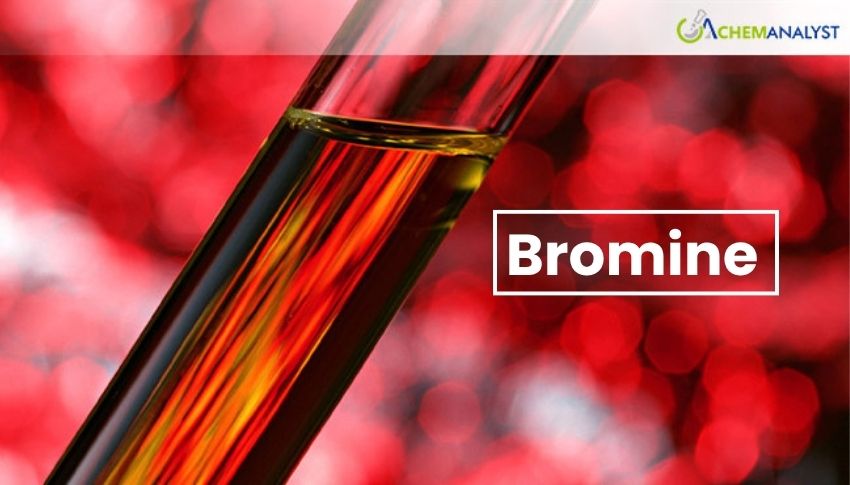Welcome To ChemAnalyst

Bromine prices in Israel held steady through June 2025, buoyed by robust production from Dead Sea facilities, particularly ICL's nearly 95% operating capacity, which effectively met demand. Despite cautious buying from key Asian markets like China and India, who opted to draw down inventories, and increased freight costs due to Red Sea risks, consistent consumption from the flame retardant, pharmaceutical, and agrochemical sectors stabilized the market. Israeli naval patrols mitigated logistical issues, preventing price volatility. The market anticipates continued stability into Q3 2025, unless there are significant shifts in Red Sea logistics or Asian construction demand.
Bromine prices in Israel remained stable throughout June 2025, as strong production from Dead Sea facilities balanced out cautious demand from key Asian buyers. Despite heightened freight risks and subdued restocking in China and India, steady offtake from flame retardant, pharmaceutical, and agrochemical sectors helped keep the market firmly grounded. Traders and producers reported no significant pricing movement for Bromine for the four consecutive weeks, with fundamentals remaining resilient amid global macroeconomic uncertainty.
At the production level, ICL’s Dead Sea Bromine division continued operating at around 95% capacity, following recent expansions that added nearly 25,000 tonnes to annual output. Inventories of bromine remained manageable—estimated at three weeks of cover—supporting consistent export flows without oversaturating the market. Even with elevated output, producers showed little inclination to lower offers, as balanced demand kept the supply chain running smoothly.
However, the demand for bromine remained cautious. Chinese buyers limited spot activity due to persistent softness in private residential construction, even as public infrastructure projects offered partial support. Indian buyers, facing strong infrastructure momentum but a mixed private housing outlook, focused on immediate-term procurement. With both nations preferring to draw down bromine inventories rather than restock aggressively, market activity stayed muted.
Meanwhile, higher freight costs added a layer of complexity. The drone activities in the Bab al-Mandab strait and elevated security risks near the Strait of Hormuz triggered war-risk surcharges—estimated at up to 0.5% of vessel value—adding several dollars per tonne to shipping costs. To safeguard trade, the Israeli government stepped up naval patrols, helping prevent logistical bottlenecks and maintaining supply chain reliability despite rerouting via the Cape of Good Hope.
Market participants also noted that even though logistics costs rose and voyage durations stretched, these disruptions were not severe enough to derail overall flow. Dead Sea output effectively offset delays, and buyers were not pressured into urgent procurement. As a result, bromine prices stayed within a narrow band, with no major fluctuations during the month.
Looking ahead, according to ChemAnalyst, the Israeli bromine market is expected to remain stable into Q3 2025, barring any major disruptions in Red Sea logistics or unexpected shifts in Asian construction demand. While freight conditions will remain a key variable, strong domestic production and consistent consumption from key downstream sectors are likely to provide a buffer. Should demand in China’s housing sector or India’s infrastructure surge unexpectedly, prices of bromine could inch higher—but for now, a calm, range-bound outlook prevails.
We use cookies to deliver the best possible experience on our website. To learn more, visit our Privacy Policy. By continuing to use this site or by closing this box, you consent to our use of cookies. More info.
